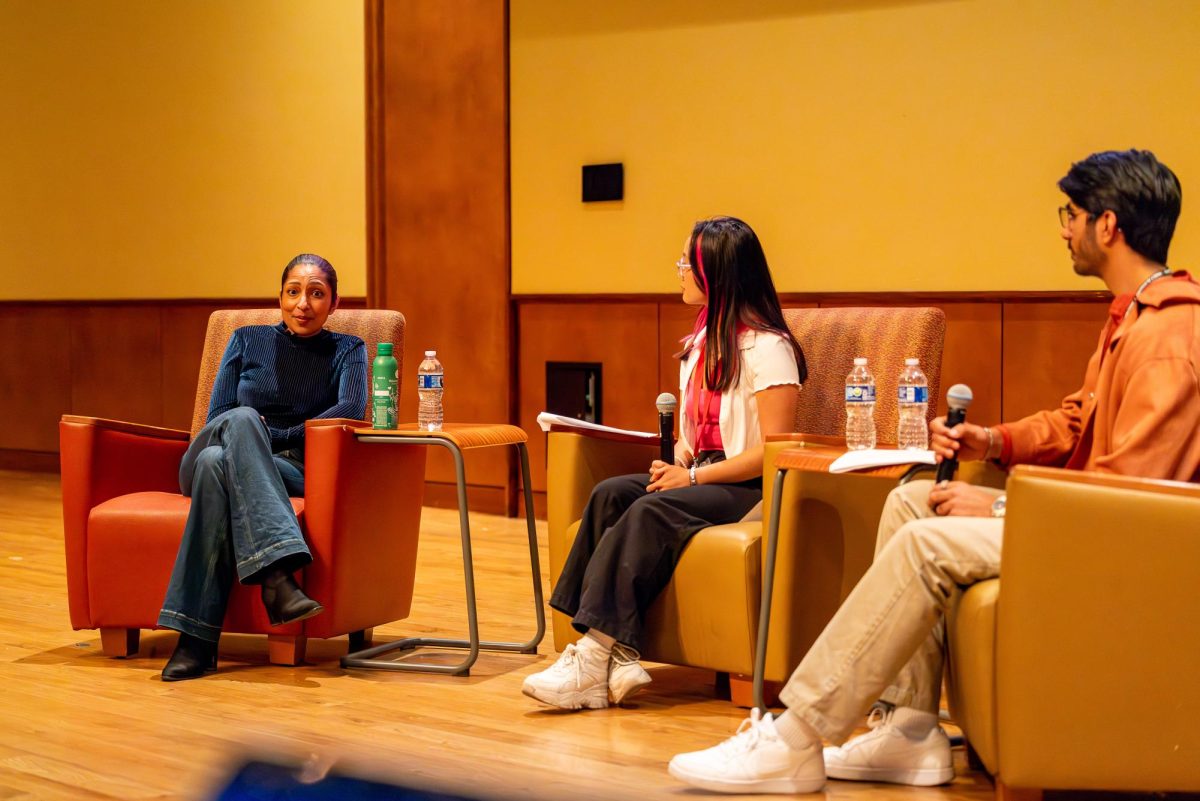Renowned cookbook author and New York Times food reporter Priya Krishna delivered the keynote address for Asian Pacific Islander Desi American Heritage Month at the University of Wisconsin Monday. Krishna did a live cooking demonstration as part of her talk, during which she shared lessons from her journey in the culinary world. The event was organized by the APIDA Heritage Month Planning Committee in collaboration with Wisconsin Union Directorate Cuisine.
Krishna was on the 2021 Forbes’ 30 Under 30 list, and is the author of the best-selling children’s cookbook “Indian-ish.” Audience members asked her questions while she showed her efficient and accessible approach to cooking.
“The way that I write recipes is how do I maximize labor and minimize effort,” Krishna said, “I am a busy cook. I don’t like spending a ton of money on groceries to make a dish that feeds one person for one day. So these are all things that I’m really mindful of when I’m designing a recipe.”
Krishna recalled how her interest in food began as a child, saying she obsessively studied menus from around the world — a hobby that later inspired her career path. But Krishna said her passion was not understood by her immigrant family, initially causing tension.
“I basically lied and told my dad that I applied to JP Morgan and Goldman Sachs, but I just never submitted the application,” Krishna said, “I felt very misunderstood. There was such a generational divide between us and it was really hard.”
Krishna said working on her cookbook was a big part of what began to change her parents’ perception of her work. She said she was grateful for the opportunity to represent her mother’s recipes in her book.
Krishna said she wants her cookbook to reveal how cuisines in communities of color are more accessible than they may seem, where simple and everyday food looks differently depending on how one was raised. It is her hope that people will turn to her cookbooks and feel encouraged to try diverse flavors, building more inclusion and sociopolitical engagement.
“We live in a world in which the ability to assert yourself as a person of color, and assert your right to exist is literally under attack,” Krishna said. “To me, food is inherently linked to politics — one cannot exist without the other.”
Krishna emphasized there is a need for more inclusion. She said food serves as a catalyst for sociopolitical engagement, building conversation for political change, and shared the importance of cultural representation and accessibility in the food industry to build cross-cultural understanding and appreciation.
While achieving success, Krishna acknowledged facing challenges as a woman of color in the male-dominated restaurant world, and how there are still barriers in the food world where only certain types of chefs and cuisines were deemed worthy of coverage.
She strives to change such preconceptions by advising students of color in the room to ask for what they deserve and negotiate salaries confidently.
“Now, the food world is really changing,” Krishna said. “The types of people writing about food are changing. And the people that we want to write about are changing as well. I feel like if we can just approach things from a stance of curiosity and respect and not like you think you know better, the world would be a better place.”




